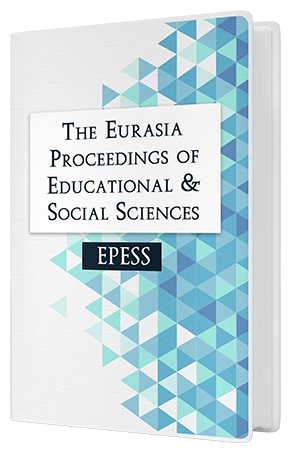BEYOND CLASSROOM BOUNDARIES, ENHANCING MARGINALIZED CHILDREN’S SELF-CONCEPT THROUGH LEARNING OUTSIDE CLASSROOM APPROACH
Keywords:
Learning outside classroom, marginalized children, primary science, self-concept, moduleAbstract
Workplace expectations and scenarios in this 21st century require human capitals who are equipped with competencies to embark in the STEM related careers. Therefore, marginalized children need to be prepared and upgrade themselves. Analytical scrutiny of marginalized children talent development often found low self-concept as the most important factor which inhibit their learning development. It is argued that effort to enhance self-concept among marginalized learners must be revolved around their surroundings. Conducive and meaningful learning environment need to be crafty designed to suit their needs and tendencies. In this study, self-concept covers evaluative appraisal of oneself in both the academic and non-academic aspects. This study is aimed to determine the effect of Learning Outside the Classroom (LOC) primary science module towards enhancing self-concept among marginalized learners’ in Malaysia. By employing a quasi-experimental with pre-test post-test, nonequivalent control group research design, a total of some 73 primary school marginalized learners were involved in the study. The treatment group used LOC primary science module while the control group experienced learning using conventional module prepared by the Ministry of Education. In the treatment group, teaching and learning processes occurred outside the classroom using particularly flora and fauna within their surroundings. Self-concept was evaluated using Self Descriptive Questionnaire (SDQ). Data obtained were analyzed using MANOVA repeated measures. Analysis of findings lead to inference that there was a significant main effect of group in shaping the children’s self-concept. This study concludes that LOC modules, which carry in itself meaningful and fun science learning experiences has successfully developed marginalized children self-concept. It is then suggested that similar learning modules as developed in this study, be developed across other themes as envisaged in the science primary curriculum for marginalized children.Downloads
Published
Issue
Section
License
Copyright (c) 2017 The Eurasia Proceedings of Educational and Social Sciences

This work is licensed under a Creative Commons Attribution-NonCommercial-ShareAlike 4.0 International License.
The articles may be used for research, teaching, and private study purposes. Any substantial or systematic reproduction, redistribution, reselling, loan, sub-licensing, systematic supply, or distribution in any form to anyone is expressly forbidden. Authors alone are responsible for the contents of their articles. The journal owns the copyright of the articles. The publisher shall not be liable for any loss, actions, claims, proceedings, demand, or costs or damages whatsoever or howsoever caused arising directly or indirectly in connection with or arising out of the use of the research material. All authors are requested to disclose any actual or potential conflict of interest including any financial, personal or other relationships with other people or organizations regarding the submitted work.




